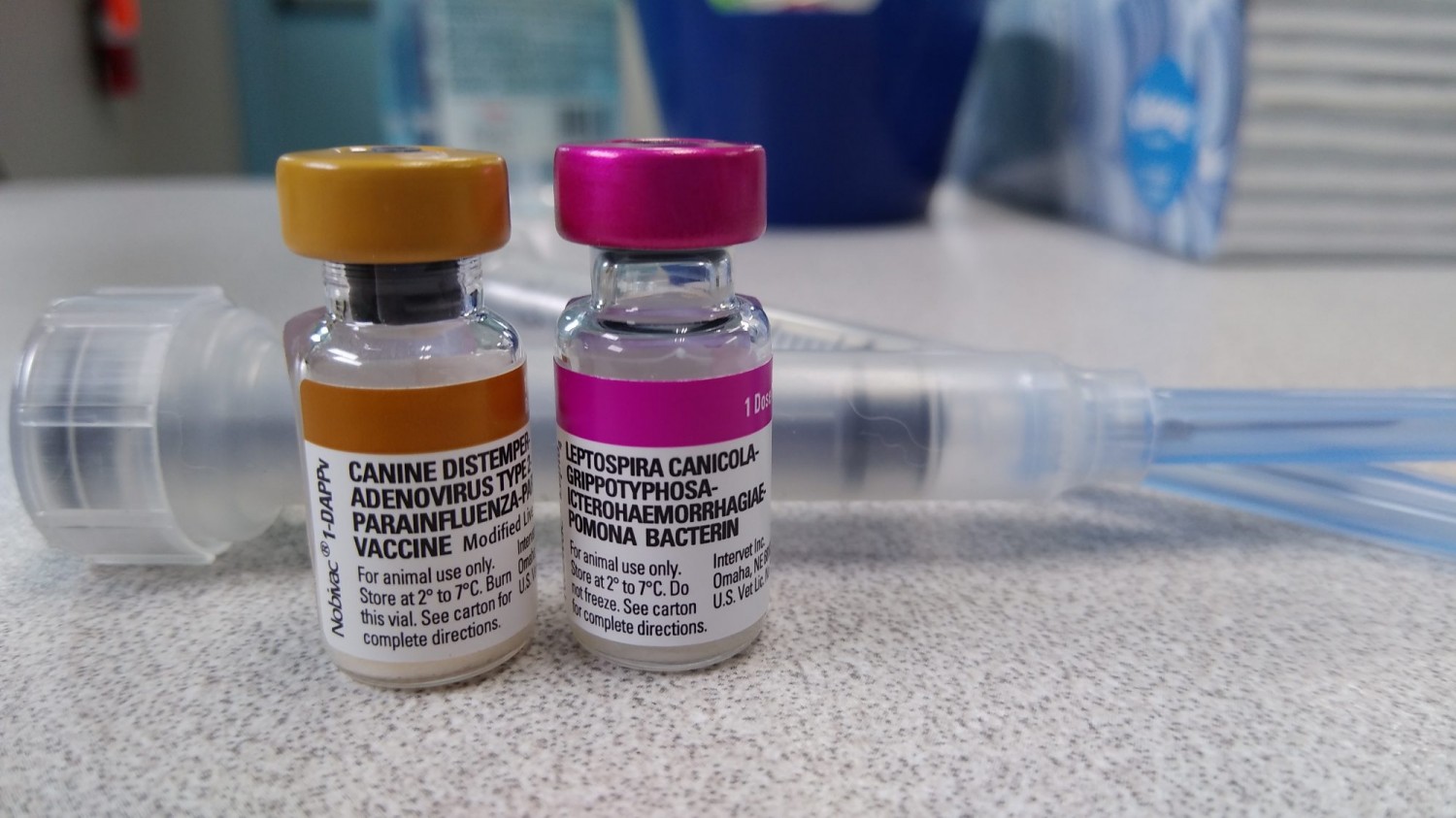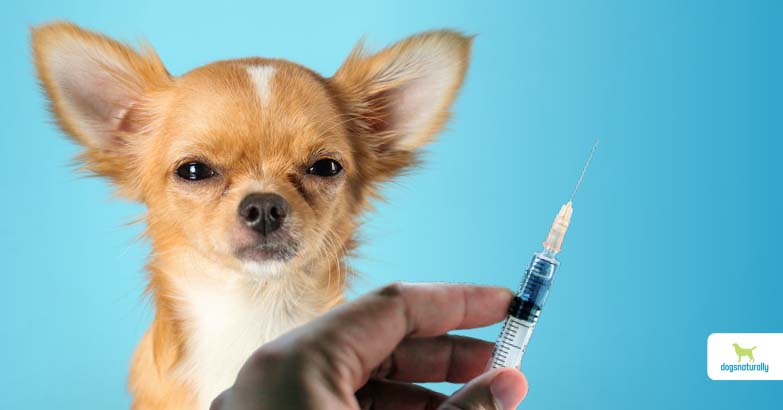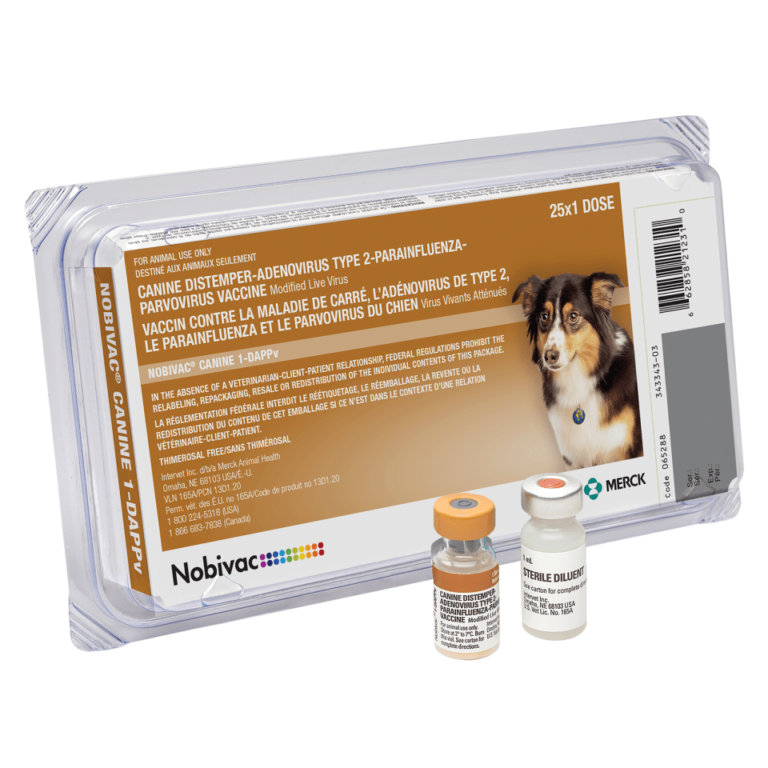A distemper shot for dogs provides protection against the highly contagious and potentially deadly distemper virus, which can affect the respiratory, gastrointestinal, and nervous systems of dogs. Getting a distemper shot for your dog is crucial for ensuring their overall health and well-being.
The shot helps to prevent the spread of the distemper virus, which can cause a range of serious symptoms, including fever, coughing, vomiting, diarrhea, and seizures. By vaccinating your dog against distemper, you reduce the risk of them contracting this dangerous illness, and also help to protect other dogs they may come into contact with.
This simple preventive measure can go a long way in keeping your beloved pet healthy and safe from distemper.

Credit: k9aquaticcenter.com
Overview Of Distemper Shot
A distemper shot is a crucial vaccination that helps protect dogs from the highly contagious canine distemper virus. This viral infection affects a dog’s respiratory, gastrointestinal, and nervous system, and can be severe and even fatal. The distemper shot is a preventive measure that can significantly reduce the risk of dogs contracting this devastating disease.
Definition Of Distemper Shot
A distemper shot, also known as the distemper vaccine, is a vaccination specifically designed to protect dogs against the canine distemper virus. This vaccine is typically given as a combination shot, along with other important vaccines, to provide broad protection against various diseases.
Importance Of Distemper Shot
The distemper shot plays a vital role in keeping dogs healthy and safe. Canine distemper is highly contagious, and dogs can contract the virus through direct contact with infected animals or exposure to their bodily fluids or environments. Puppies and unvaccinated dogs are particularly susceptible to this virus.
- A distemper shot can prevent the spread of the virus within the dog population.
- It helps protect dogs from potentially fatal illnesses and complications associated with distemper.
- Vaccinations are often required by pet care facilities, such as boarding kennels and groomers, to ensure the safety of all dogs.
- By vaccinating dogs, we contribute to the overall health and well-being of these beloved pets.
How Distemper Shot Works
The distemper shot works by stimulating a dog’s immune system to produce protective antibodies against the canine distemper virus.
When a dog is vaccinated with the distemper shot:
- The vaccine introduces a weakened or inactivated form of the virus into the dog’s body.
- The dog’s immune system recognizes the virus particles as foreign.
- The immune system mounts a response, producing antibodies specific to the distemper virus.
- If the dog is exposed to the actual virus in the future, the antibodies will recognize and neutralize it, preventing infection or reducing the severity of the disease.
It’s important to note that the distemper shot requires regular booster vaccinations to ensure that a dog’s immunity remains strong and effective against the virus.
Benefits Of Distemper Shot
The distemper shot is a crucial component of a dog’s vaccination schedule, offering a myriad of benefits that not only protect your furry friend but also contribute to a longer and healthier life. Let’s delve deeper into the benefits of the distemper shot for dogs and how it plays a pivotal role in their well-being.
Prevention Of Canine Distemper
One of the primary benefits of administering the distemper shot to your dog is the prevention of canine distemper, a highly contagious and potentially fatal viral disease. The vaccine effectively stimulates the dog’s immune system to produce antibodies that provide immunity against this detrimental virus, safeguarding your pet from the devastating effects of distemper.
Protection Against Other Diseases
By receiving the distemper shot, your dog not only guards against distemper but also gains protection against other related diseases such as parvovirus and adenovirus. These additional benefits fortify the dog’s immune system, reducing the risk of contracting multiple serious illnesses, thereby contributing to overall well-being and vitality.
Increase In Life Expectancy
Administering the distemper shot results in a significant increase in your dog’s life expectancy. By shielding them from deadly diseases through vaccination, you are essentially extending their lifespan and enhancing their quality of life, providing you with more years to cherish and create unforgettable memories with your beloved pet.
When And How Often To Administer Distemper Shot
When and How Often to Administer Distemper Shot
Recommended Age For Vaccination
Puppies should receive their first distemper shot at 6-8 weeks of age. The vaccination process should continue with additional shots every 3-4 weeks until the puppy is around 16 weeks old. This ensures complete protection against distemper virus.
Vaccination Schedule
After the initial puppy shots, a booster should be given at 1 year of age. Depending on the vet’s recommendation, a distemper shot may then be administered every 1-3 years thereafter to maintain immunization.
Follow-up Boosters
Regular boosters help sustain immunity and are usually needed every few years. Your veterinarian will determine the optimal schedule for your dog, keeping in mind regional guidelines and your pet’s individual health condition.

Credit: www.havenlakeanimalhospital.com
Potential Side Effects Of Distemper Shot
A distemper shot, also known as a distemper vaccine, is an essential part of your dog’s preventive healthcare. It helps protect your furry friend against the highly contagious and potentially deadly distemper virus. While the benefits of vaccinating your dog far outweigh the risks, it’s important to be aware of the potential side effects that may occur.
Mild Reactions
Most dogs experience only mild reactions after receiving a distemper shot. These reactions are typically short-lived and pose no serious threat to your pet’s overall well-being. Common mild reactions include:
- Localized swelling or tenderness at the injection site, which usually resolves within a few days.
- Mild lethargy or a decrease in energy levels, lasting for a day or two.
- Temporary loss of appetite or a slight decrease in eating habits.
- Low-grade fever, typically lasting for a short duration.
- Minor allergic reactions, such as sneezing or itching.
If your dog experiences any of these mild reactions, there is usually no cause for alarm. However, if the symptoms persist or worsen, it is advisable to consult your veterinarian for further guidance.
Serious Adverse Reactions
Although rare, serious adverse reactions to the distemper shot can occur. It’s important to be aware of these potential risks, even though they are uncommon. Serious adverse reactions may include:
- Allergic reactions: In rare cases, dogs may experience severe allergic reactions to the vaccine components. This can manifest as difficulty breathing, facial swelling, or hives. Immediate veterinary attention is necessary if you observe any signs of a severe allergic reaction.
- Anaphylaxis: Anaphylaxis is a severe and life-threatening allergic reaction that can occur shortly after vaccination. It can cause symptoms such as difficulty breathing, collapse, or shock. If you suspect your dog is experiencing anaphylaxis, seek emergency veterinary care immediately.
- Neurological reactions: Although extremely rare, some dogs may show neurological symptoms after receiving the distemper shot. These symptoms can include seizures, uncoordinated movements, or weakness. If you observe any signs of neurological abnormalities, contact your veterinarian right away.
Addressing Concerns About Side Effects
While the potential side effects of a distemper shot may sound alarming, it is important to remember that the occurrence of serious adverse reactions is rare. The vast majority of dogs experience no significant problems from the vaccine. Vaccinating your dog is crucial to protect them from the deadly distemper virus, and the benefits of vaccination far outweigh the risks. If you have any concerns about the potential side effects of the distemper shot or the overall vaccination process, discuss them with your veterinarian. They will address your concerns and provide the necessary information to ensure the well-being of your beloved pet.

Credit: www.dogsnaturallymagazine.com
Frequently Asked Questions For What Does A Distemper Shot Do For A Dog
What Is A Distemper Shot For Dogs?
A distemper shot is a vaccination that helps protect dogs from the highly contagious viral disease called distemper. This vaccine is a crucial part of a dog’s preventive healthcare routine as it helps prevent the spread of the virus and its potentially fatal consequences.
How Does A Distemper Shot Work?
A distemper shot works by introducing a small and harmless amount of the distemper virus into the dog’s body. This allows the dog’s immune system to recognize and build defenses against the virus. In case of exposure to the actual virus, the dog’s immune system is better equipped to fight off the infection.
How Often Should A Dog Get A Distemper Shot?
Typically, dogs should receive their first distemper shot around 6 to 8 weeks of age, followed by booster shots every 3 to 4 weeks until they reach 16 weeks of age. After that, dogs usually receive a booster shot every 1 to 3 years, depending on the vaccination protocol recommended by their veterinarian.
Can A Distemper Shot Cause Side Effects In Dogs?
While uncommon, some dogs may experience mild side effects after receiving a distemper shot. These can include temporary lethargy, loss of appetite, mild fever, or localized swelling at the injection site. However, the benefits of vaccination far outweigh the risks, as distemper can be a serious and potentially deadly disease for dogs.
Conclusion
A distemper shot plays a crucial role in protecting dogs from a highly contagious and potentially fatal disease. By stimulating their immune system, this vaccination helps prevent the spread of distemper virus and ensures a healthier and longer life for our furry companions.
Make sure to consult with a veterinarian to determine the appropriate vaccination schedule for your dog. Safeguard your pet’s well-being today!



